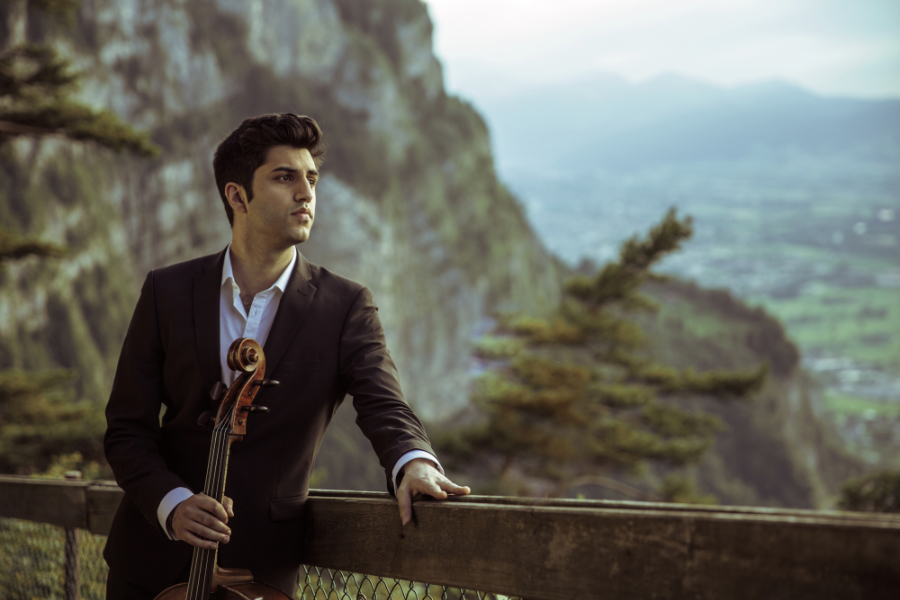The new season of the NFM Leopoldinum Orchestra unfolds under the inspiring motto Better Together. Guided by this idea, the ensemble – under the direction of Alexander Sitkovetsky – welcomes a constellation of exceptional guest artists. Each concert programme will bring pieces demanding not one but several soloists. The first opportunity to admire on the NFM stage the ensemble founded in 1978 will come at the end of September, when they will be joined by two electrifying cellists: Pablo Ferrández, associated with Sony, and Kian Soltani, recording artist for Deutsche Grammophon. Together with the Leopoldinum Orchestra, they will bring to life varying music: from Soltani’s own creation to masterpieces by Antonio Vivaldi, Mieczysław Karłowicz, Alfredo Piatti, and Giovanni Sollima.
Music history is rich with virtuosos who wrote works tailored to their own instrument — an impulse Soltani embraces wholeheartedly. The NFM Leopoldinum Orchestra concert begins with his Prelude for two cellos and strings. From there, the audience will be carried back to the vibrant world of the Baroque, in Vivaldi’s rarely performed Concerto in G minor. The famous virtuoso possessed a remarkable gift for melody, which makes his narrative captivating, further enriched by vivid and expressive rhythms. From Baroque elegance we move into the Romantic era with Alfredo Piatti, celebrated in his time as “the Paganini of the cello,” as Liszt himself declared. A central figure of 19th-century musical life, Piatti collaborated with luminaries such as Henryk Wieniawski and Joseph Joachim and spent much of his adult life in London. His Serenade for two cellos and strings, tender and songlike, recalls the poetic spirit that made him beloved in his day. Sicilian composer and cellist Giovanni Sollima – a charismatic presence well known to Wrocław audiences – takes the stage next. He, too, is active as a composer, and that evening we will listen to his work Violoncelles, vibrez! In this piece, Sollima draws freely on stylistic elements characteristic of film music.
After the intermission, the programme offers a work by the British-American artist Freya Waley-Cohen, another voice of our own era. Her piece Talisman, written in 2020, was described by the composer in these words: “I had the following images in my mind: a ritual or event that bestows magic upon an object, and an object that bestows magic upon a ritual; the roots of a great tree cracking through concrete and paving stones; and the musical score itself as a talisman of the performative ritual.” The evening concludes with Mieczysław Karłowicz’s youthful yet deeply lyrical Serenade, composed during his studies in Berlin and premiered in 1897 under the baton of his teacher, Heinrich Urban. Though it predates the darker symphonic poems for which Karłowicz is remembered, it already carries the unmistakable lyrical voice that would define his legacy.

